Demonstrating four functionalities
Demo-BLog aims to demonstrate capturing, integrating and storing building data, as well as converting this data into actionable information for relevant stakeholders across the construction market value chain.
The project is further developing four functionalities in terms of automation, digital and ICT tools, APIs and software applications and demonstrating their implementation in five front-runner digital building logbooks.
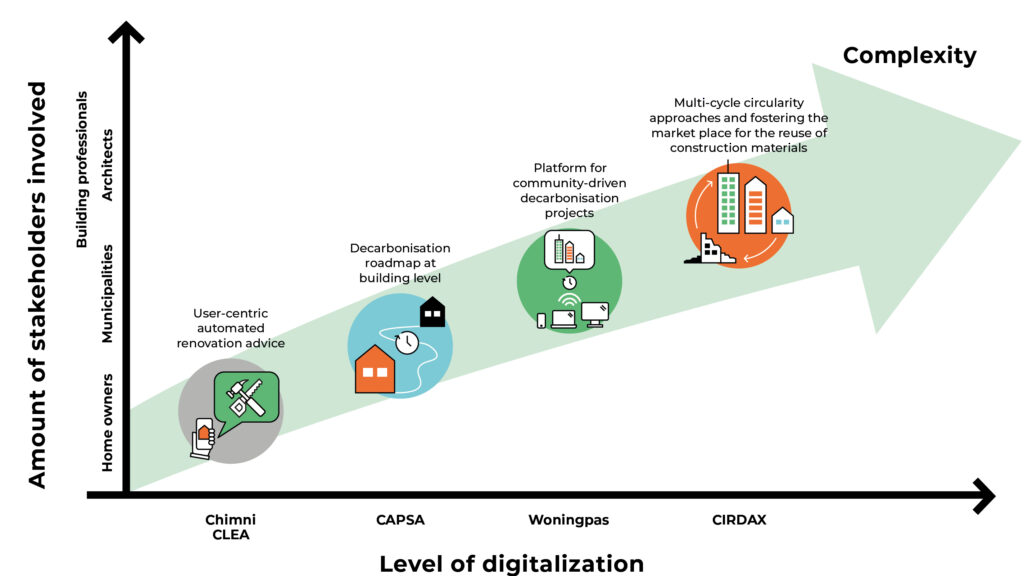
These diverse functionalities address key societal challenges, ranging from ‘quick wins’ (renovation and advice, and community driven decarbonisation pathway) to complex industrial transaction objectives (circularity).
1. User-centric automated renovation advice
A functionality mainly targeted at homeowners that will provide an initial set of recommendations for building retrofit improvements based on existing datasets, particularly EPC (Energy Passport Certificate) databases.
It will build on existing automated advice tools and the novelty is the integration of these tools into a logbook functionality. The automated renovation advice (e.g. replacing a window or boiler) is a potential trigger that could open a dialogue with building owners and prompt further engagement and action. Therefore, functionality integration within building logbooks offers the potential to improve these tools regarding UX, customer journey, advice quality and potential links to renovation one-stop-shops.
CLEA and Chimni are the two pilots within Demo-BLog that will test and demonstrate the user-centric automated renovation advice.
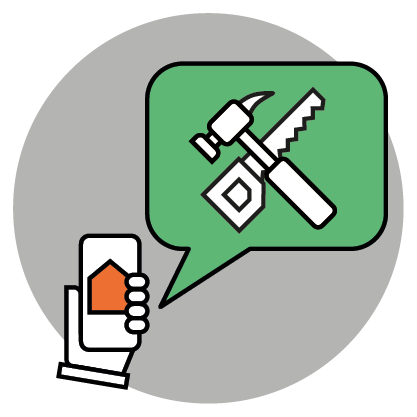
2. Decarbonisation roadmap at building level
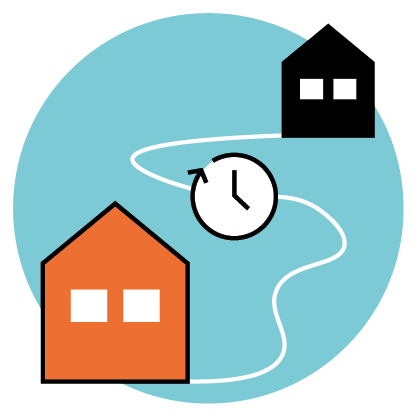
Whereas the automatic renovation check is usually a quick and light touch assessment, the roadmap functionality takes a further step to give a more detailed overview based on additional data collected on-site. Equally, while the automated renovation advice is based on a snapshot of the property (no regret renovation measures and quick wins with short payback times), the decarbonisation roadmap presents a renovation journey over time (i.e. staged deep renovation). It helps building owners gain a complete overview of when they will have to do what to their homes.
The decarbonisation roadmap will consider local energy infrastructure and regional long-term renovation strategies and it can be updated as new measures are installed.
CAPSA is the platform that will demonstrate this functionality.
3. Platform for community-driven decarbonisation projects
This platform will make use of the logbook data to unlock the potential of energy communities, positive energy neighbourhoods, collective RES sharing, sustainable co-housing projects and neighbourhood renovations through economies of scale, pooling of finance and expert advice.
The functionality will be designed to support community-led projects aimed to aggregate local demand (e.g. installing measures on several properties in the same street). It will provide a platform for community engagement and connecting to building/energy services and stakeholders, e.g. service providers, utility companies, local governments, a building retrofit value chain. This tool will also be relevant for local authorities to identify trends and better plan/design renovation programmes.
The Woningpas platform will carry out the demonstration of this functionality.
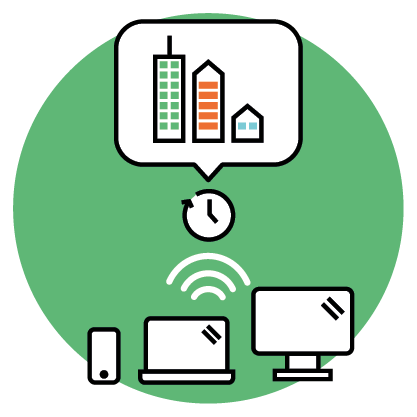
4. Multi-cycle circularity approaches and fostering the market place for the reuse of construction materials
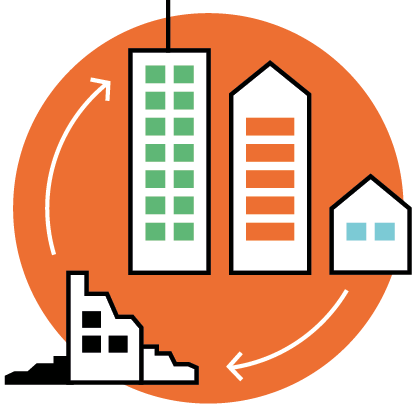
The scope of this functionality will go beyond the operational energy performance and use phase carbon emission mitigation to consider whole lifecycle environmental impacts. The functionality will create building material and component inventories to conduct whole life carbon assessments and indicate the potential future reuse of building materials and components. Transparency in the data of components and materials used in buildings will be used to calculate the financial and environmental impact of buildings at the material and component level, and this information can be leveraged in the marketplaces for reused/recycled components.
This functionality should create new opportunities for circularity and make it viable. It will enable building professionals (e.g. designers and architects) to better assess building sustainability performance and choose accordingly. It could also help identify which building components pose a threat to health, safety and environment and incentivise their replacement.
CIRDAX is the database that will demonstrate this functionality.